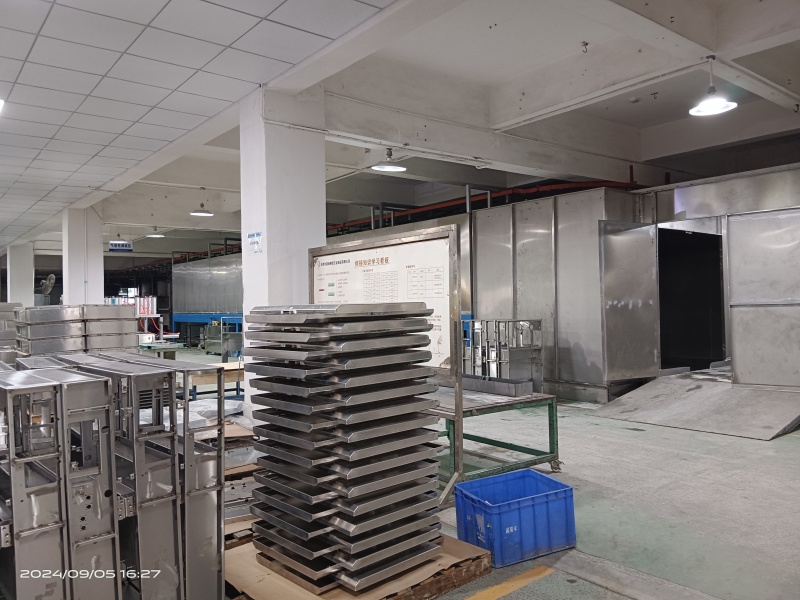
How do I choose sheet metal material?
-
by Jiatong
- 628
Mechanical Factors Important to Sheet Metal Material Selection
Strength, Ductility, Corrosion resistance, Ease of manufacture.etc
Choosing the right sheet metal material involves considering several factors based on your project’s requirements. Here’s a breakdown of the key considerations:
1. Material Properties:
Strength: Consider how much load or stress the material needs to withstand. High-strength materials like steel or titanium are ideal for heavy-duty applications, while softer materials like aluminum or copper are suited for lighter loads.
Ductility: If the sheet metal needs to be bent or formed without cracking, materials like aluminum, brass, or stainless steel are more suitable due to their flexibility.
Corrosion Resistance: For environments where moisture or chemicals are a concern, materials like stainless steel, aluminum, or galvanized steel offer excellent corrosion resistance.
Weight: For applications requiring lightweight materials, aluminum and titanium are good choices, whereas steel is heavier but stronger.
Thermal and Electrical Conductivity: Copper and aluminum are excellent conductors, making them suitable for electrical or heat transfer applications.
2. Cost:
The budget for your project will impact the choice of material. Steel is generally less expensive than materials like aluminum or copper, but if corrosion resistance or weight is critical, investing in a more expensive material may be justified.
3. Formability and Machinability:
If the sheet metal needs to be easily shaped, consider the material’s formability. Aluminum is highly formable, while harder metals like steel may require more force or specialized equipment. Additionally, some materials are easier to machine (e.g., brass, aluminum) than others (e.g., stainless steel).
4. Surface Finish:
The desired appearance of the final product can dictate material choice. For instance, stainless steel has a shiny, aesthetic finish suitable for visible components, while plain steel might be preferred for parts that will be painted or hidden.
5. Environmental and Temperature Considerations:
If the material will be exposed to extreme temperatures, you should consider how the material behaves under those conditions. Some metals may become brittle at low temperatures or weaken at high temperatures.
6. Weldability:
If the sheet metal will need to be welded, ensure the material is suitable for welding. Aluminum, for instance, requires specific techniques for welding compared to steel.
Common Sheet Metal Materials:
Steel: Versatile and strong, available in various forms (cold-rolled, galvanized, etc.), commonly used for structural and heavy-duty applications.
Stainless Steel: Corrosion-resistant, strong, and visually appealing, ideal for environments exposed to moisture or chemicals.
Aluminum: Lightweight, corrosion-resistant, and highly formable, suitable for aerospace, automotive, and consumer goods.
Copper: Excellent electrical and thermal conductivity, often used in electrical components and roofing.
Brass: Good formability and corrosion resistance, often used for decorative purposes or in plumbing.
Titanium: High strength-to-weight ratio and excellent corrosion resistance, often used in aerospace, medical, and high-performance applications.
Conclusion:
Evaluate the specific needs of your project, balancing material properties, cost, and environmental factors. Testing a few materials in your intended application can also help refine your choice.
Click sheet metal fabrication company china or china sheet metal forming manufacturers to learn more about sheet metal fabrication services.
For all your electrical enclosures from China, contact Sheet Metal Fabrication Companies in China JIATONG now.
From china metal enclosure manufacturers, china sheet metal manufacturing manufacturers – JIATONG
Mechanical Factors Important to Sheet Metal Material Selection Strength, Ductility, Corrosion resistance, Ease of manufacture.etc Choosing the right sheet metal material involves considering several factors based on your project’s requirements. Here’s a breakdown of the key considerations: 1. Material Properties: Strength: Consider how much load or stress the material needs to withstand. High-strength materials like steel or…
Mechanical Factors Important to Sheet Metal Material Selection Strength, Ductility, Corrosion resistance, Ease of manufacture.etc Choosing the right sheet metal material involves considering several factors based on your project’s requirements. Here’s a breakdown of the key considerations: 1. Material Properties: Strength: Consider how much load or stress the material needs to withstand. High-strength materials like steel or…